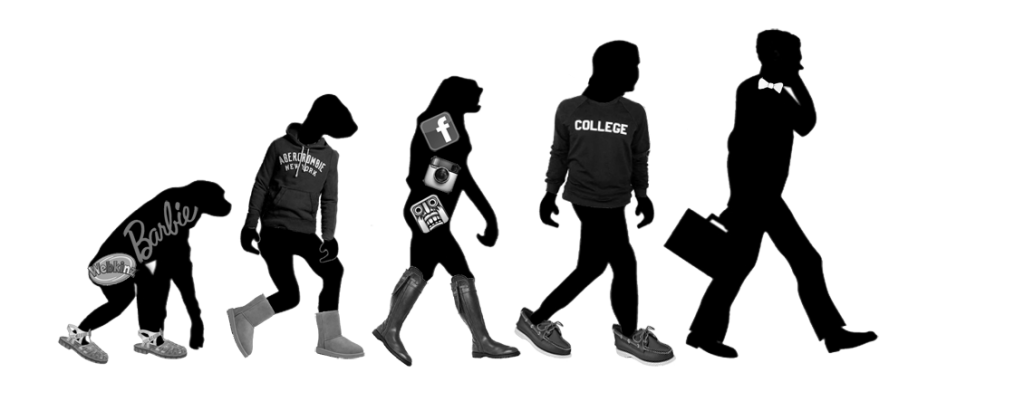Popularity: the state or condition of being liked, admired, or supported by many people. Maybe this defines popularity in the dictionary, but in high school it’s defined by party invitations, priority seating in the cafeteria, and recognition by all 2,000 students.
But how did the select few achieve the highest status? Well, it began before anyone knew what the term “popularity” meant.
The Glory Days:
Elementary school: lunch seats are assigned, and best friends are the 23 people who sit nearby in class, along with the scattered rec sports and dance friends. But with middle school lurking like an ominous shadow ahead, the grade size will triple, one classroom will turn to four, and the comfort of knowing all classmates will disappear.
From the “Big man on Campus” to a Small fish in a Big pond:
In middle school, the cafeteria is full of new peers. Survey the bustling room, and try to find familiar faces; ditch the musical chairs to land a spot at a decent table. The cliques have already begun to form: sporty, musical, academic, the list goes on and on. The biggest groups from each school gravitate toward each other as if they had received the rule book for surviving middle school along with their class schedules.
You have some Chutzpah thinking you’re going to be invited to my Bar Mitzvah:
Seventh grade excitement revolves around the contents of a mailbox and the guaranteed goody bags to come, containing the proof of being invited to the year’s most exclusive events: Bar Mitzvahs. Because sporting the logo-wear from the weekend’s affairs will earn social immunity to the competitive middle schoolers mind. Duh.
The Race to the Frienducopia:
The amount of people will double yet again, and with all the new stress of high school, worrying about where to sit at lunch shouldn’t be at the top of the list. Let’s admit it; it would be much easier to just concentrate on school, but teenagers are programmed to race to the cornucopia. Well— frienducopia. Where, instead of weapons, as many friends as possible are acquired. Lunch is the epicenter of social activity, as the senior tour guide warned, all “fresh meat” is exiled to the Freshman Ghetto to scavenge the tables for someone recognizable, hands full of admittedly-better cafeteria food.
Reaping the Rewards:
The dizzying maelstrom that is freshman year has calmed to a steadier, non-cannibalistic wave. High school brings an automatic craving for friends who can’t be earned by having the newest Webkinz toy or wearing a bar mitzvah sweatshirt. Popularity becomes a concept based less on objects and more on finding real friends— making social skills a tougher task than ever before. While there is still consideration over who’s the most popular person school wide, the focus is spent more on settling into groups of friends.
So Webster’s dictionary, I’d like to offer this alternative definition to the social climbing we all know but not all love.
Popularity: a political term used to describe teenagers and their vigorous, sometimes extremist, attempts to be queens and kings of the social pyramid.
And it doesn’t stop in high school, because as Glenda sang it in Wicked:
“It’s not about aptitude, it’s the way you’re viewed, so it’s very shrewd to be very very popular!”















































